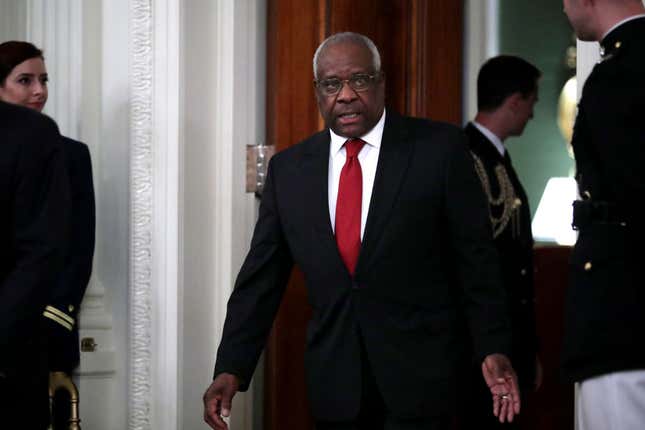
Justice Clarence Thomas, the longest-serving and second-oldest member of the Supreme Court, is hospitalized with an infection and being treated with intravenous antibiotics, as reported by The Washington Post. According to a press release, Thomas was admitted to Sibley Memorial Hospital in Washington on Friday evening, according to the release, with flu-like symptoms.
“He underwent tests, was diagnosed with an infection, and is being treated with intravenous antibiotics,” the release said. “His symptoms are abating, he is resting comfortably, and he expects to be released from the hospital in a day or two.”
Thomas’s illness is said not to be due to COVID-19. All the Supreme Court Justices have been vaccinated and received a booster. The court will hear oral arguments Monday through Wednesday this week. Patricia McCabe, spokesperson for the Supreme Court, said Thomas does not plan to participate remotely.
“His symptoms are abating, he is resting comfortably, and he expects to be released from the hospital in a day or two,” McCabe said. “Justice Thomas will participate in the consideration and discussion of any cases for which he is not present on the basis of the briefs, transcripts and audio of the oral arguments.”
One case that the court will hear arguments about is Berger v. North Carolina State Conference of the NAACP. The outcome will determine the ability of state officials to intervene and defend the constitutionality of state laws–in this instance, North Carolina voter I.D. laws.
The court did not say why it waited two days to reveal the news. It also provided no additional details about the infection. Senate Judiciary Committee will also begin hearings today to consider the nomination of Ketanji Brown Jackson.

